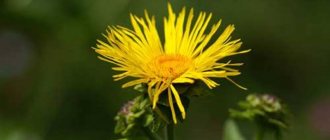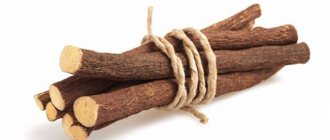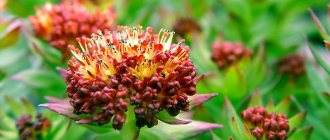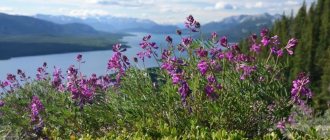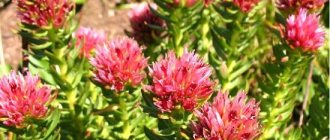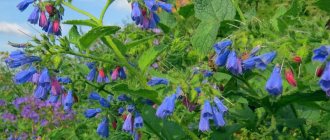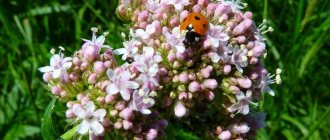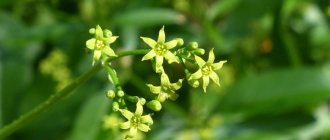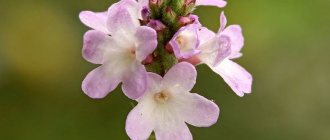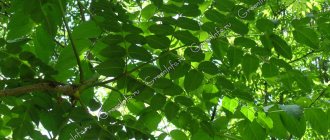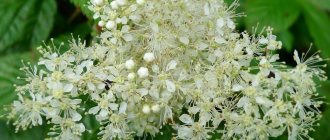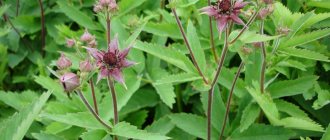Ginseng tincture: from antiquity to the present day
Wild ginseng is a pharmacopoeial plant that has received official recognition in all corners of the world. Ginseng treatment is used in traditional medicine in China, Korea, Vietnam, Japan and other Asian countries. For the first time, ginseng and its beneficial properties are described in detail in the Korean Pharmacopoeia. Records date back to 1610, but the plant has been in use for over 2000 years.
In ancient times, only emperors, noble and rich people could use tincture as a medicine. The recipe for the medicine was kept in the strictest confidence and passed down from generation to generation. In those days, due to a lack of knowledge, the root was considered a magical remedy, but with the development of science, it was possible to reveal the secret of the composition of the plant and its effect on the body.
Chemical composition
Root tincture - instructions for use
Today, the composition and medicinal properties of the root have been thoroughly studied. Science confirms the uniqueness of the complex of chemicals and their effectiveness. The use of ginseng has no analogues throughout the world due to the special combination and concentration of active substances, which together have a therapeutic effect. Pharmacological activity is due to the presence of the following active components and vitamins in the root tincture:
- saponins;
- flavonoids;
- essential oils;
- polyenes;
- 17 types of amino acids;
- fatty acid;
- vitamins (B2, B3, B5, B9, C, biotin, PP);
- mineral compounds (manganese, phosphorus, potassium, calcium, iron, zinc, copper, aluminum);
- polysaccharides;
- 5 types of sugars (fructose, rhamnose, glucose, maltose and sucrose);
- other vitamins.
Ethyl alcohol content in bottles
What are the benefits of ginseng root?
Ginseng root has many medicinal properties that affect various processes in the body. So, why does everyone value this plant so much? It has the following beneficial properties:
- increases appetite;
- has a general strengthening and tonic effect;
- helps in recovery after serious operations and serious illnesses;
- can improve performance;
- normalizes low blood pressure;
- reduces blood sugar and cholesterol levels;
- helps with the functioning of the endocrine glands;
- has a positive effect on the central nervous system;
- increases sexual desire;
- restores sexual function in men.
Beneficial components of ginseng root
Ginseng roots are rich in micro- and macroelements beneficial to the human body. For example, they contain large amounts of potassium, calcium, magnesium and phosphorus. The root also contains copper, cobalt, iron, zinc, chromium and manganese.
In addition, ginseng roots are rich in B vitamins and vitamin C.
"Root of Life" also contains a high concentration of essential oils (especially farnesol), water-soluble polysaccharides (up to 40%) and alkali-soluble polysaccharides (up to 10%).
The main active ingredients contained in ginseng roots, of course, are saponins, xatriols, and BA polyacetylenes.
Indications for use
Ginseng root is used for preventive and medicinal purposes. It affects blood pressure and is a general tonic for the body as a whole, improving health. Over more than 20 years of practice, we have constantly observed positive dynamics in our patients. However, this does not mean that the tincture can be used uncontrollably. Each disease has its own technology of use, which only a specialist can know about. In any case, you must first find out in which cases the use is indicated.
Use in the digestive system
Taking the tincture shows excellent results for gastrointestinal diseases. Moreover, it is included in the complex of treatment of hepatitis with folk remedies, and is also effective for:
- congestion in the liver;
- pancreatitis;
- gastritis;
- constipation;
- loss of appetite;
- enzyme deficiency;
- cholecystitis.
Cardiovascular system - application and doses
It has a positive effect on the functioning of the central nervous system, reduces general weakness and fatigue, drowsiness, increases physical and mental activity, and blood pressure. Ginseng also has a beneficial effect on the cardiovascular system. We actively use it in the treatment of ischemia with folk remedies, as well as for concomitant pathologies:
- phlebeurysm;
- thrombosis;
- atherosclerosis;
- hypertension;
- hypotension;
- vegetative-vascular dystonia;
- circulatory disorders due to heart failure;
- cardiac ischemia;
- stroke;
- heart attack
- Hypotension (low blood pressure)
Contraindications: Hypersensitivity to the components of the drug, arterial hypertension (high blood pressure)
Respiratory system - application and doses
The tincture, contrary to many misconceptions, can also be used for diseases of the respiratory system, such as:
- COPD;
- bronchitis (asthmatic and infectious);
- sarcoidosis;
- pneumonia;
- tuberculosis.
It will be especially effective for preventive purposes. It has been noted that a person who regularly takes the root of life is much less likely to suffer from acute respiratory viral infections, bronchitis and other seasonal respiratory diseases.
Tincture - indications for use
Nervous system - application
Ginseng plays a special role in the treatment of diseases of the nervous system. Often, it helps to cope with severe illnesses, when traditional medicine literally puts an end to patients. Tinctures are indicated for the following diseases:
- age-related dementia;
- organic brain lesions, except malignant tumors;
- epilepsy;
- apathy;
- depression;
- asthenic syndrome;
- neurasthenic syndrome;
- emotional burnout;
- post-traumatic stress disorder;
- increased fatigue, chronic fatigue syndrome;
- increased excitability;
- impaired concentration and memory.
I would like to note the positive effect in the treatment of epilepsy with folk remedies. In this case, it is possible to achieve, if not a complete cure, then a significant improvement in the patient’s quality of life.
Urinary and reproductive system - application and doses
The most popular use of ginseng tincture is noted in the treatment of diseases of the reproductive system, as well as as an effective folk remedy after childbirth. Tincture for women is used in the following situations:
- To extend reproductive age - allows you to delay the onset of menopause by 7-10 years, depending on genetic characteristics.
- For the treatment of thrush, frequent adnexitis, infertility.
- As a natural aphrodisiac that increases libido and sensitivity in cases of sexual problems.
In the treatment and prevention of sexual problems, the tincture for men is used with a high success rate. In andrology, the plant helps solve the following problems of men's health:
- adenoma;
- prostatitis;
- decreased erectile function and libido;
- impotence.
Andrologists universally recommend using the tincture for preventive purposes to prolong the reproductive period and delay age-related changes in the body.
Prevention
Ginseng tincture is used to achieve the following preventive purposes:
- strengthening the immune system;
- rejuvenation (internally and externally);
- to increase endurance;
- to improve cognitive functions of the brain;
- for longevity.
Eastern countries hold the record for the number of centenarians who have crossed the hundred-year threshold. It is not difficult to guess that one of the factors that prolongs life and youth is the root, which is used by Asians almost every day.
There is no other plant on our planet that enjoys such great fame as an all-healing remedy as ginseng. Ginseng is perhaps the most famous representative not only of the Araliaceae family, but also of medicinal flora in general.
It is most often called the “root of life.” Literally translated from Chinese, the word “ginseng” means “root man” (zhen – man, shen – root). This name was given for the striking resemblance of the ginseng root to the human figure. Based on the principle of similarity, the more the root resembled a human figure, the more it was valued. Eastern healers considered ginseng a panacea (the literal meaning of this Greek term is a remedy for everything; the generic name “Panax” comes from the same word and means “all-healing”).
Ginseng has been known in Eastern folk medicine for at least 3000 years. Reliable references to the use of ginseng are contained in medical treatises dating back to the 4th century. BC e. Ginseng roots were first brought to Europe from Asia by Dutch merchants in the 17th century. In Russia, ginseng became known in 1675 thanks to the Russian envoy to China N.G. Scafari.
Ginseng is a perennial herbaceous plant that lives up to 100 years, with a rhizome (neck) and a fleshy taproot (body). The root has 2–6 branches at the end. In the upper part there are ring wrinkles, the number of which increases with age. A wintering bud develops at the top of the rhizome, and the future above-ground shoot is formed in it. The flowers are small, greenish, collected in an apical umbel at the end of the peduncle. The fruit is a bright red two-locular (occasionally three-locular) berry-shaped drupe. It blooms in June, the fruits ripen in August and remain on the plant until September.
It grows in the Far East: in the Primorsky Territory and in the south of the Khabarovsk Territory. Found on mountain slopes, in cedar-broadleaf and cedar-spruce-broadleaf forests in single specimens or small groups. Ginseng roots are harvested no earlier than August in order to preserve the seeds, since the plant reproduces only by seeds. Natural reserves of the plant are very limited and tend to decline further. The natural restoration of ginseng is hampered by the slow growth and development of the plant. Harvesting of wild plants is carried out only under licenses. Ginseng is included in the Red Book.
The cultivation of ginseng began in Korea in the 1st century. BC e., a little later this practice was continued in China. Currently widely cultivated in China, Korea, Japan, and Russia. The experience of growing ginseng shows that its cultivation is possible where it is possible to create conditions close to natural ones. In ginseng growing in the taiga, the mass of the root increases slowly and it reaches marketable condition by about 20 years. Under cultivated conditions, ginseng develops faster; on plantations, ginseng roots can be harvested after 6–7 years.
The pharmacological properties of ginseng root are primarily associated with triterpene saponins - panaxosides A, B, C, D, E, F. These are glycosides of tetracyclic triterpenes of the dammarane series, which are absent in other Araliaceae. In panaxosides A, B, C the aglycone is panaxatriol, and in panaxosides D, E, F it is panaxadiol.
In addition, the roots contain up to 18% protein substances, 2–3% lipids, a significant part of which is phytosterol, up to 20% starch, 16–23% pectin substances, as well as sucrose (3–4%) and monosaccharides (glucose, fructose and etc.). The specific smell of the roots is due to the presence of essential oil. There are mucus, tannins, resins, ascorbic acid, vitamins B1, B2, biotin, nicotinic, folic, pantothenic acids, polyacetylene compounds. The content of phosphorus, sulfur, and microelements is significant. More than half of the root ash consists of phosphates.
Ginseng leaves, as well as the root, contain triterpene glycosides - ginsenosides and flavonoids. The content of the total glycoside fraction in the leaves is higher than in the roots. In Korea, ginseng leaves are used for medicinal purposes to heal wounds and ulcers.
Contrary to popular belief, the chemical composition and medicinal properties of wild and cultivated ginseng are almost identical, but the cost is much lower.
The mechanisms of pharmacological action of ginseng have not yet been fully disclosed. Most scientists believe that more than one mechanism underlies the various manifestations of the action of ginseng. An increase in human mental performance indicates the undeniable influence of ginseng on the cerebral cortex. On the other hand, the effect of ginseng on the reactivity of the body, metabolism, gonadotropic and antidiuretic effects indicates the effect of ginseng on the diencephalon - the pituitary gland, and thereby on other endocrine glands.
Ginseng has adaptogenic, metabolic, biostimulating, antiemetic, tonic effects, and increases appetite. Stimulates the central nervous system, reducing general weakness, increased fatigue, drowsiness, increases blood pressure, mental and physical performance; stimulates sexual function. Reduces cholesterol and glucose levels in the blood, activates the activity of the adrenal glands.
Based on the research results of Professor Brekhman I.I. and other domestic authors, it is quite justified to use ginseng as a stimulant and tonic for physical and mental fatigue, decreased performance, after suffering debilitating diseases of the body, some nervous and mental diseases of a functional nature (neuroses, neurasthenia, psychasthenia), etc.
Ginseng is prescribed to adults as a stimulant for mental physical stress, arterial hypotension, neuroses, neurasthenia, neurocirculatory dystonia of the hypotonic type, asthenia of various etiologies, convalescence after illness, to increase physical endurance in athletes.
Ginseng is contraindicated in cases of hypersensitivity, arterial hypertension, increased excitability, insomnia, bleeding, febrile syndrome due to acute infectious diseases; in childhood (up to 16 years), pregnancy, lactation. Additional contraindications for the tincture: liver cirrhosis, alcoholism, epilepsy.
For medical use from ginseng root (cultivated and wild), crushed plant raw materials and tincture (1:5 in 70% ethanol) are allowed, which are used orally 30–40 minutes before meals, 30–50 drops of tincture 2–3 times in a day. The maximum daily dose for adults is 200 drops.
Capsules are prescribed orally with meals, 0.5–1.0 g (in terms of dry standardized ginseng extract) 2–3 times a day for 25–30 days. If necessary, repeat courses of treatment are carried out with a break of 2 weeks.
Ginseng root extract is the main active ingredient of the medicinal products Gerbion Ginseng and Gerimax Ginseng.
Gerimax Ginseng tablets are prescribed orally for adults at 200–400 mg (1–2 tablets) per day. Gerbion Ginseng capsules are prescribed 1 capsule per day after breakfast. The course of treatment is 4–8 weeks.
As a general tonic and anti-stress drug - 100 mg 2 times a day for 11 weeks. To increase mental performance - 400 mg daily.
In order to obtain a hypoglycemic effect in type 2 diabetes mellitus, as well as to increase antiviral immunity (can be used as a supplement during vaccination) - 100-200 mg daily.
For erectile dysfunction - 600 mg daily.
Ginseng root extract is also included in complex medicines: Vitrum performance, Ginsana, Doppelhertz vitalotonic, Doppelhertz ginseng active, Doppelgerz ginseng, Multiproduct for men, Multi-tabs active, Teravit antistress, Teravit tonic, which are taken as prescribed by a doctor and in accordance with instructions for medical use.
Regarding ginseng, an opinion has been formed that it is an absolutely universal remedy that can be taken almost like a vitamin for everyone and for everything. In fact, this is not true at all. Ginseng has a fair number of side effects when used uncontrolled. Capsules can cause diarrhea, insomnia, headache, nervousness, nausea, vomiting, tachycardia, agitation, increased blood pressure, nosebleeds, hypoglycemia, allergic skin reactions (edema). Tincture: allergic reactions, tachycardia, headache, sleep disturbance, hypoglycemia. Ground vegetable raw materials: tachycardia, agitation, sleep disturbance. Film-coated tablets: diarrhea, nausea, vomiting, allergic skin reactions, tachycardia, headache, insomnia, increased blood pressure, increased nervous irritability.
Ginseng enhances the effect of psychostimulants and analeptics (including caffeine, camphor, etc.). Shows antagonism to drugs that depress the central nervous system (including barbiturates, tranquilizers, antiepileptic drugs). Enhances the effect of hypoglycemic drugs. Strengthens the effect of warfarin. Increases the risk of developing resistance to loop diuretics.
To avoid sleep disturbances, ginseng preparations are not recommended to be used in the afternoon. Use with caution in patients with cardiovascular diseases and diabetes. Ginseng exhibits a distinct seasonal effect: its use is most effective in autumn and winter. In spring and summer, the effect may be the opposite of what is expected. Eastern medicine prescribes taking ginseng in combination with physical labor in the fresh air.
How to take ginseng tincture
How to take ginseng tincture
The tincture is taken orally for up to 30-60 days, 2-3 times a day. During a consultation with our specialist, an individual dosage regimen and the required dose will be selected for you. There is no universal technique, since for high efficiency the following factors should be taken into account:
- age;
- weight;
- presence of concomitant diagnoses;
- general condition of the body;
- purpose of taking the tincture.
Call now and find out how to take the tincture with maximum results specifically in your case!
The miraculous properties of ginseng
Since ancient times, legends have been made about the miraculous properties of ginseng. In our time, modern medicine has been able to prove and explain the healing properties of the “divine herb”.
Has a calming effect
Scientists have found that ginseng has a calming effect, making it recommended for use in cases of depression, stress, neurotic conditions, increased irritability, mental stress, and nervous excitability.
Lowers blood sugar levels
Ginseng is also beneficial for diabetics due to its ability to lower blood sugar levels. In addition, thanks to the substances contained in ginseng root, its regular use helps normalize blood pressure, which is especially important for hypotension.
Has antioxidant and anti-inflammatory properties
These are some of the most important properties of ginseng that have been proven by scientific research.
The study by Korean scientists involved 18 young athletes who took 2 g of Korean red ginseng extract three times a day for seven days. The subjects were then tested for certain inflammatory markers. These numbers were significantly lower than those in the placebo group, and the effect lasted up to 72 hours.1
Another, more extensive, study conducted in 2014 involved seventy-one women, all of whom were postmenopausal. Subjects took 3 grams of red ginseng or a placebo daily for 12 weeks. The scientists then studied antioxidant activity and markers of oxidative stress and concluded that red ginseng may reduce oxidative stress by increasing the function of antioxidant enzymes.2
Ginseng will restore male strength
Experiments have shown that after two months of use, more than 80% of men note an increase in their sexual activity. All this thanks to saponin - a substance that can restore a man to his former sexual strength, as well as make sperm more active.
Ginseng acts here as a stimulant - it, of course, cannot increase the duration of sexual intercourse, but it is quite capable of strengthening an erection and having a beneficial effect on potency in general. A 2007 study by Brazilian scientists found that ginseng may be a useful alternative for treating erectile dysfunction in men.3
It is recommended to use ginseng root for problems with premature ejaculation, as well as for impotence.
Improves memory and mood
Ginseng may improve brain functions such as memory and mood.4 In addition, some studies have shown that the drug has a positive effect on brain function in people with Alzheimer's disease.5 However, more research is still needed in this area.
Ginseng root and female beauty
Ginseng root extract and its essential oils are widely used in cosmetology. It's no secret that ginseng has the amazing ability to stimulate the restoration (regeneration) of the skin, as well as accelerate hair growth. Due to its bactericidal effect, ginseng is often added to acne-fighting products. Ginseng is also added to anti-aging cosmetics - it helps smooth out fine wrinkles, promotes cell regeneration, enhances microcirculation, improving overall skin health.
In addition, some women use ginseng for weight loss. Ginseng is able to normalize metabolism in the body, so this use is completely justified.
Contraindications
Vodka tincture of the root is contraindicated:
- children under 3 years old;
- with progressive oncological diseases;
- severe infectious diseases;
- with individual intolerance;
- pregnant and lactating women.
Other cases and illnesses are considered individually. Upon purchase, you will receive recommendations and a personal dosage regimen from our biomedical specialist - Roman Bestuzhevo-Ulansky, a hereditary hunter-trade, practicing since 1999.
Use during pregnancy and breastfeeding
Contraindicated during pregnancy - specialist consultation required
Benefits of our Ginseng Tincture
The root tincture, which we suggest you purchase in the online store, has a number of undeniable advantages. Consider the benefits of our products.
- Artificial cultivation involves the use of fertilizers, intensive watering with disinfected water, and processing. We offer you a tincture of wild root. A plant grown in natural conditions is much healthier and safer than specimens cultivated on plantations, and does not contain heavy metals and radionuclides.
- To prepare the tincture, we use the roots of plants that are at least 25 years old. Cultivated ginseng grows faster due to the intervention of breeders and hybridization, but is inferior in concentration of biologically active substances to wild specimens.
- We extract raw materials for the tincture in the fall - studies have shown that by the end of the growing season the concentration of biologically active substances reaches its peak. Industrial enterprises do not use this, since we are talking about large volumes and seasonality makes production unprofitable.
